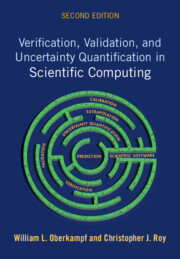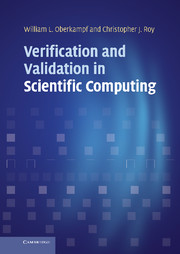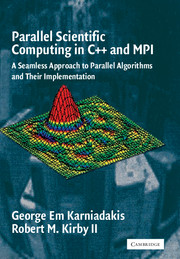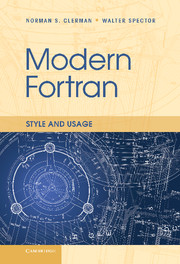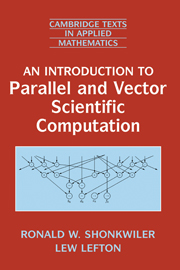Verification, Validation, and Uncertainty Quantification in Scientific Computing
Can you trust results from modeling and simulation? This text provides a framework for assessing the reliability of and uncertainty included in the results used by decision makers and policy makers in industry and government. The emphasis is on models described by PDEs and their numerical solution. Procedures and results from all aspects of verification and validation are integrated with modern methods in uncertainty quantification and stochastic simulation. Methods for combining numerical approximation errors, uncertainty in model input parameters, and model form uncertainty are presented in order to estimate the uncertain response of a system in the presence of stochastic inputs and lack of knowledge uncertainty. This new edition has been extensively updated, including a fresh look at model accuracy assessment and the responsibilities of management for modeling and simulation activities. Extra homework problems and worked examples have been added to each chapter, suitable for course use or self-study.
- Suitable as a text, or supplementary text, for undergraduate and graduate courses, with new homework problems and worked examples added to each chapter
- Includes material suitable for undergraduate students with limited experience in the numerical solution of partial differential equations
- Provides detailed examples in code verification, solution verification, model validation, uncertainty quantification, and predictive capability
- Includes three chapters on how organizations can plan, manage and implement credibility assessment procedures
Reviews & endorsements
'This landmark book, by two top-level experts in VVUQ, is a major contribution to the field of scientific computing. It provides the concepts and the tools to develop critical judgement when evaluating results from numerical simulations. Addressing students, researchers as well as practitioners. An essential and necessary contribution towards gaining confidence in the computational based design process!' Charles Hirsch, Vrije Universiteit Brussel
Product details
April 2025Hardback
9781316516133
729 pages
263 × 186 × 42 mm
1.544kg
Available
Table of Contents
- 1. Introduction
- Part I. Fundamental Concepts:
- 2. Fundamental concepts and terminology
- 3. Modeling and computational simulation
- Part II. Code Verification and Software Engineering:
- 4. Software engineering for scientific computing
- 5. Code order-of-accuracy verification
- 6. Exact and manufactured solutions
- Part III. Solution Verification:
- 7. Numerical uncertainty estimation
- 8. Iterative error
- 9. Discretization error
- Part IV. Model Validation and Predictive Capability:
- 10. Model validation fundamentals
- 11. Design and execution of model validation experiments
- 12. Model accuracy assessment
- 13. Predictive capability
- Part V. Planning, Management, and Implementation Issues:
- 14. Planning and prioritization in modeling and simulation
- 15. Maturity assessment of modeling and simulation
- 16. Verification, validation, and uncertainty quantification responsibilities and management
- Index.

